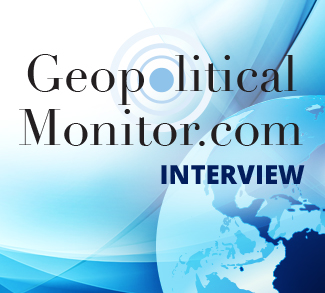If we are now in fact living in a global village, it’s one where the inhabitants agree on just one thing: capitalism is the ideal model for generating economic growth. Everything else – political structure, religious and cultural values, and who gets the biggest slice of the capitalist pie – is all very much up in the air.
These ideas matter. They can bring down national governments, influence foreign policies, and even alter the geopolitical landscape of entire regions ala the ‘Arab Spring.’ In extremis they can form the logical bedrock of a ‘civilizing’ mission of war and occupation.
Politicians have sought to manipulate these ideas since the very first forums were cobbled together. The urge to control public perception, to label the heroes and villains within and without, has remained a political constant throughout our history. And for centuries the dissemination of these ideas followed a similar, top-down trajectory of some authoritative source telling us who we are and what we believe in.
But the advent of the Internet has changed all that.
The Internet is a game-changer in two ways. First there’s the nature of the medium, which allows for an escape from the top-down model and the easy skepticism it breeds. ‘Truth’ no longer issues forth from the pulpit or Dan Rather or the latest issue of Pravda; it reveals itself in fragments throughout our interconnected lives. Second there’s the global reach of the Internet. Now governments can dialogue directly with the populations of rival countries, even if the people don’t necessarily know who it is they’re talking to.
It should thus come as no surprise that various governments are actively engaged in molding Internet debate. They do this simply by hiring writers, making them sign non-disclosure agreements, and having them post favorable blog updates or comments on forums and news articles.
Here are a few prominent examples, though the list can hardly be considered exhaustive:
China
China’s efforts to “guide public opinion” on the Internet are among the most sophisticated in the world. The first instance of the Chinese government hiring Internet commentators dates all the way back to 2004, making it one of the first known examples. In 2005 the practice became more widespread when then President Hu Jintao implored major websites and local governments to form their own teams of Internet commentators to propagate pro-Party viewpoints. Since then the practice has become further entrenched in government bureaucracies. A series of leaked emails in 2014 revealed that nearly 300 Internet commenters were employed in Zhanggong, a district of Gangzhou with a population of 460,000. A 2013 estimate by researchers at Harvard University put the total number of government commenters in China at anywhere from 250,000 – 300,000.
These commenters have been nicknamed the wumaodang, or “50-Cent Party,” for the 50 cents they are believed to earn with each posted comment. The 50-Cent Party has grown in importance over the past ten years, with its role transitioning from passive ‘yes-man’ to a more active disseminator of Party ideology – think US “talking points” with Chinese characteristics. The 2014 email leak also included a list of Party instructions to Internet commenters:
To the extent possible make America the target of criticism. Play down the existence of Taiwan
Do not directly confront [the idea of] democracy; rather, frame the argument in terms of “what kind of system can truly implement democracy.”
To the extent possible, choose various examples in Western countries of violence and unreasonable circumstances to explain how democracy is not well-suited to capitalism.
Use America’s and other countries’ interference in international affairs to explain how Western democracy is actually an invasion of other countries and [how the West] is forcibly pushing [on other countries] Western values.
Use the bloody and tear-stained history of a [once] weak people [i.e., China] to stir up pro-Party and patriotic emotions.
Increase the exposure that positive developments inside China receive; further accommodate the work of maintaining [social] stability.
According to a Radio Free Asia report from 2014, China’s Ministry of Industry and Information Technology has set up a training center to teach the next wave of would-be commenters how best to influence Internet discussions. This represents an obvious step forward in professionalizing the field of Internet propaganda.
Russia
Beyond the indisputable fact of its existence, few details are known of the Russian government’s program to manipulate Internet opinion. It seems to have evolved in some way from the Nashi, a Kremlin-funded anti-fascist youth group that was founded in 2007 and folded in 2012. Hackers broke into the email account of a Nashi spokesperson in 2012 and discovered that the group had paid out hundreds of thousands of pounds to a network of bloggers, journalists, and freelance commenters to provide flattering coverage of Vladimir Putin and criticize his opponents. A year later, Russian journalists evidently stumbled across another arm of the program while investigating a St. Petersburg company called the Internet Research Agency. When an undercover reporter responded to an ad offering cash to surf the Internet, she was given the task of ‘sh*tting’ on opposition politician Alexei Navalny in four separate blog posts. The office was like an Internet café, according to the reporter, with one room devoted to blog posts on social networks and the other to commenting on news stories. Employees were paid the equivalent of $36.50 for an 8-hour work day, and the office appeared to be run by a man with close links to the municipal committee on youth policy.
While it remains difficult to trace the funding and command structure of these Russian ‘web brigades,’ their presence is keenly felt by media organizations covering Russian affairs. A 2009 article by Anna Polyanskaya, Andrei Krivov, and Ivan Lomko entitled The Kremin’s Virtual Squad gives insight into their modus operandi. The article notes that the Russian Internet was mostly liberal-leaning around 1999 before taking a hard authoritarian turn in the years to follow. It credits this ideological shift in part to the rise of the ‘G-Team,’ a group of government-supported commenters who champion an ideology that is anti-American, anti-Semitic, and anti-liberal. Members of the G-Team go a step further than simply disseminating government talking points; they actively target more liberal contributors with the aim of elbowing them out of the conversation completely, sometimes with threats of physical harm and even murder. The authors provide a list of ideological tics shared by members of the G-Team. It includes:
Whitewashing Stalinism.
A sensitivity to casting the KGB/FSB in a negative light.
Loyalty to the Putin regime.
Support of the Chechen War.
Anti-Americanism and anti-Westernism.
Nostalgia for the USSR.
Hatred of intelligentsia, particularly emigrants.
Hatred of dissidents and human rights advocates.
If the list were re-compiled for 2015, ‘labeling the Ukrainian government fascist’ would figure prominently, as the Guardian discovered first-hand in the months following the breakout of the conflict. That was when moderators first starting noticing a ‘particularly nasty strain’ of trolling that manifests whenever Vladimir Putin or Russian foreign policy is cast in a negative light. The scale and ferocity of the trolling was such that it caused an upsurge in complaints from regular users who felt their voices were being drowned out. Guardian moderators believe that some unknown pro-Kremlin group is behind the campaign.
The United States
It is apparently not beneath the lofty morals of the United States to engage in these kinds of activities. According to a Guardian article from 2011, US Central Command (CENTCOM) awarded a $2.76 million contract to a California-based corporation called Ntrepid to develop specialized ‘sock puppet’ software. The software would create up to ten separate, geographically-unique identities that could be used to influence the online discussions of far-flung lands.
The contract was awarded as part of Operation Earnest Voice, a $200 million military program that aims to counter online jihadi recruitment in Pakistan, Afghanistan, and the Middle East by ‘being first with the truth.’
Similar to the Chinese and Russian programs, the software would require a group human operators – in this case members of the US military – who would be charged with monitoring the flow of online discussion and meting out ‘truth’ whenever appropriate.
Systematic US efforts to influence Internet discussion are hamstringed right out of the gate vis-à-vis their foreign peers, or so CENTCOM would have us believe. Ntrepid’s software cannot be used on the English-language Internet (only Arabic, Farsi, Urdu, and Pashto), and it cannot target US-based websites due to restrictions imposed by domestic law.
Why Does It Matter?
Whenever Western media coverage broaches the G-Team, 50-Cent Party, or similar operations, the tone is generally one of paternal amusement. Much is made of an ‘ask me anything’ in China that saw a Zhanggong party secretary greeted by a chorus of robotic praise like “I really admire Party Secretary Shi, what a capable and effective Party Secretary! I hope he can be the father of Ganzhou for years to come.” Much is also made of the poor spelling and grammar of the trolls who descend on the latest Ukraine editorial.
But to only focus on the present absurdities misses the bigger picture. This is a practice that is relatively new, evolving very quickly, and most importantly – it works.
For one we’re only afforded the luxury of amusement by the fact we can (supposedly) discern who is and isn’t a government troll, and there’s no reason to believe that that will always be the case. Methodology in the field is evolving fast, and the blunt edge of today’s sloganeering could soon be sharpened by better concealment and perhaps even a few psychological sleights from the branding magicians of the private sector. Every program highlighted in this article shows signs of evolution in terms of better concealing the true nature of the Internet operator: in Russia, G-teamers started registering accounts ‘gradually and purposefully’ to avoid detection. They also spin little yarns for personal backgrounds (an ex-criminal, a ‘former dissident,’ a Russian mother living in Florida); the Ntrepid software for the US military routs through various proxies to create a global village of sock puppets; and the Chinese government has gone so far as to open a school to make 50-centers less conspicuous and more persuasive.
Another important point is that the growth of these online propaganda capabilities is at present one-sided. There may be an ongoing expansion and refinement of pro-government voices but there is no commiserate growth on the other side of the equation that might balance things out. This could leave individuals and smaller media outfits increasingly susceptible to harassment, threats, or simply having their voices drowned out by the mob.
Conclusion
The possibilities are endless in terms of where things go from here. Will the 50-centers remain inwardly focused or, like their Russian counterparts, begin operating on the English-language Internet? Will Western governments ramp up their own efforts? And perhaps most interestingly: Will we see propaganda ‘alliances’ between one or more national governments when their interests align against a third party?
Of course, the real loser in this will be anyone looking for an honest and open exchange of ideas on the Internet – if such a person ever truly existed in the first place.




